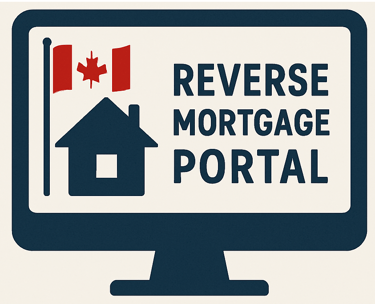What Happens When A Reverse Mortgage Ends?
Details on the Different Options Available
3 min read


What Happens When a Reverse Mortgage Ends
Understanding what happens when a reverse mortgage ends is crucial for homeowners and their families as it’s one of the biggest concerns everyone has. This guide explores the key scenarios and processes surrounding the conclusion of a reverse mortgage.
Three Primary Ways a Reverse Mortgage Ends
Moving Out of the Primary Residence
When homeowners no longer use the property as their principal residence, the reverse mortgage typically concludes. This often occurs when:
Transitioning to a retirement home
Relocating permanently
Entering long-term care facilities
2. Voluntary Mortgage Termination
Homeowners can choose to end the reverse mortgage by:
Selling the home to downsize or relocate for personal reasons
Paying off the mortgage using personal funds. This commonly occurs when homeowners receive an inheritance, sell assets or make larger withdrawals from their pension funds (ex. RRSPs)
Refinancing with a traditional mortgage if there is a change in circumstances, such as re-entering the workforce
3. Passing of Homeowners
The most common scenario for ending a reverse mortgage is when all homeowners pass away. In this situation, the estate becomes responsible for resolving the mortgage, similar to any other type of mortgage.
Financial Considerations When a Reverse Mortgage Ends
Reverse mortgages are designed differently from other types of mortgages to eliminate monthly payments. This means that the lender is only able to collect payment when the mortgage ends. The points below
The total balance includes the principal (all funds received by the homeowners) and accrued interest over the years
Homeowners cannot owe more than the home's market value
Over 99% of Canadian homeowners retain equity when the mortgage ends
Early termination of the reverse mortgage will trigger additional fees and penalties
Penalties and Early Termination
Reverse Mortgage Penalty Structure:
No penalties when homeowners pass away
50% reduced penalties for care home transitions
Higher penalties in the first three years
For more information on penalties, take a look at our Early Payment/Termination guide
Minimal to no penalties after ten years
Estate Options After Homeowner’s Passing
Since this is the most common way for reverse mortgages to end, it is important to go over the options available to the estate. The three primary options are:
Sell the Home
Use sale proceeds to pay off the reverse mortgage
Keep any remaining equity
Example: If a home sells for $1,000,000 with a reverse mortgage balance of $200,000, then the estate is left with the $800,000 difference
Pay Off the Mortgage to retain ownership of the home
Use life insurance proceeds
Utilize other estate assets
Use personal savings or assets
Refinance the Property
Heirs can secure a new mortgage to pay down the reverse mortgage balance
Important Timeline Considerations
An Estate Resolution Periods is built into the reverse mortgage contract and below are some critical points to keep in mind:
Typically, estates have 160 to 180 days to address the reverse mortgage
Lenders expect "reasonable actions" to resolve the mortgage
Actual timelines are flexible and rarely strictly enforced as long as the estate is in contact with the lender to update them on the process
As these lenders specialize in reverse mortgages, they understand it is a trying time and the process to settle the estate and potentially sell the home can take time
Lenders continue to accrue interest until they receive payment, which I’m sure is part of the reason they are more “understanding”
Key Legal Protections
Since the family home is a big part of most Canadian estates, it is crucial to highlight that there are additional legal protections in place with every reverse mortgage. The most significant points to remember are:
The lender never owns the home
The property remains with the homeowner and subsequently the estate
No inheritance of the mortgage occurs, like with any other mortgage in Canada
Preparing for the Future
Homeowners considering a reverse mortgage should:
Understand all potential scenarios
Communicate with family members
Consult financial advisors and mortgage specialists
Review mortgage terms carefully
Conclusion
When a reverse mortgage ends, the process is straightforward and designed to protect both homeowners and their estates. By understanding the options and potential scenarios, families can make informed decisions about managing their home equity and financial legacy.
Free Professional Consultation
If you have any unanswered questions, uncertainties or would like to go over your specific financial needs and goals, please contact me at mike.a@reversemortgageportal.ca to set up a call. As a CPA, Chartered Professional Accountant, of over 20 years, I know the importance of understanding the full picture before making recommendations. I look forward to learning more about you and your financial needs so I can help you make the best decision.
Don’t forget to ask about our $400 rebate!
Support
Expert guidance for your reverse mortgage needs
CONTACT US
QUESTIONS
Phone: 647-873-2414
© 2025. All rights reserved.
Mike Arsic, CPA - Mortgage Agent L1
License #M25001353
Brokerage: Mortgageville FSRA 13693
